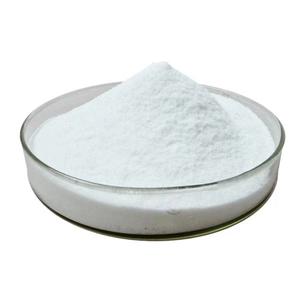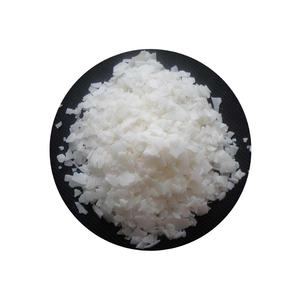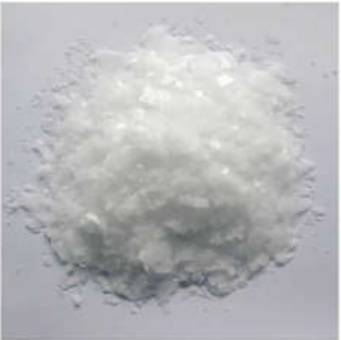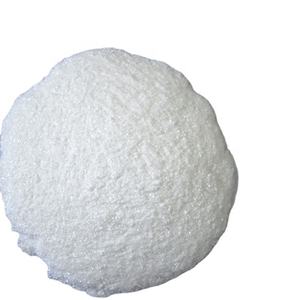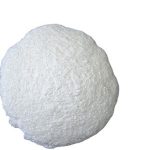Professional and high-quality metal alloys, ceramic products and concrete additives | RBOSCHCO
PRODUCT PARAMETERS
Description
Overview of Titanium Aluminum Carbide Ti2AlC Powder
MAX Special Ceramics Material Titanium Aluminum Carbide Ti2AlC Powder is a new type of ceramic material. It combines the dual characteristics of metal and ceramic, with high hardness, high melting point, excellent oxidation resistance, and good conductivity and thermal conductivity. The unique microstructure of titanium aluminum carbide powder enables it to maintain stable performance in extreme environments such as high temperature and high pressure. In addition, the powder also has good processability and plasticity. It can be prepared into complex components through various molding processes. MAX special ceramic material titanium aluminum carbide powder has been widely used in aerospace, nuclear energy, electronics and other fields due to its unique properties.
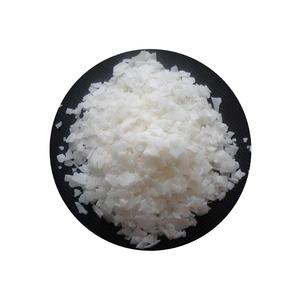
(MAX Special Ceramics Material Titanium Aluminum Carbide Ti2AlC Powder)
Features of Titanium Aluminum Carbide Ti2AlC Powder
| Titanium Aluminum Carbide Powder Properties | |
| Other Names | Ti2AlC MAXene Phase, Ti2AlC powder |
| CAS No. | 12537-81-4 |
| Compound Formula | Ti2AlC |
| Molecular Weight | 134.73 |
| Appearance | Dark Gray to Black Powder |
| Melting Point | N/A |
| Boiling Point | N/A |
| Density | 3.99 g/cm3 |
| Solubility in H2O | N/A |
| Thermal Expansion | N/A |
| Titanium Aluminum Carbide Powder Health & Safety Information | |
| Signal Word | N/A |
| Hazard Statements | N/A |
| Hazard Codes | N/A |
| Risk Codes | N/A |
| Safety Statements | N/A |
| Transport Information | N/A |
Unique crystal structure: Ti2AlC powder has a layered crystal structure, which gives it both the high hardness of ceramics and the conductivity and thermal conductivity of metals.
Excellent antioxidant properties: Under high-temperature conditions, Ti2AlC powder can form a stable oxide film, effectively preventing further oxidation and maintaining its performance stability.
Good thermal stability: Even at extremely high temperatures, Ti2AlC powder can maintain its structural and performance stability and is not prone to thermal decomposition or phase transformation.
Excellent mechanical properties: This powder has high strength and toughness and can withstand significant mechanical stresses and impacts.
Good processability: Ti2AlC powder can be processed through various molding processes, such as sintering, hot pressing, etc., to prepare multiple complex-shaped components.
Environmentally friendly and pollution-free: During production and use, Ti2AlC powder does not produce harmful substances and meets environmental requirements.
Parameter table of Titanium Aluminum Carbide Ti2AlC Powder
| Parameter | Value |
|---|---|
| Chemical Formula | Ti₂AlC |
| CAS Number | 12537-81-4 |
| Appearance | Grey-black powder |
| Purity | ≥98%, 99%, 99.5%, 99.9+% available |
| Particle Size | 0.8 – 10 μm, 1 – 5 μm, D50: 10 – 25 μm, 200 mesh, 325 mesh, 400 mesh etc123 |
| Crystal Structure | Hexagonal, space group P6₃/mmc6 |
| Melting Point | 2000 ℃4 |
| Density | 4.1 g/cm³8 |
| Element Content | Ti: 39.88%, C: 32%, Al: 28.1% or Ti: 72.6%, C: 8.9%, Al: 18.3%124 |
| Mechanical Properties | Compressive Strength: 764 MPa; Bending Strength: 375±15 MPa; Fracture Toughness: 7.2 MPa·m¹/²; Vickers Hardness: 3.5 GPa; Young’s Modulus: 297 GPa24 |
| Electrical Properties | Electrical Conductivity: 2.9×10⁶ S·m⁻¹ (25 ℃), 0.85×10⁶ S·m⁻¹ (800 ℃); Resistance Temperature Coefficient: 3.1×10⁻³ K⁻¹4 |
| Thermal Properties | Thermal Expansion Coefficient: 9×10⁻⁶ K⁻¹; Thermal Shock Resistance: Fine |
Production Method of Titanium Aluminum Carbide Ti2AlC Powder
Solid-State Reaction Method: Weigh titanium powder, aluminum powder and carbon powder according to the stoichiometric ratio of Ti₂AlC. Thoroughly mix them and place the mixture in a high-temperature furnace. Heat it to 1200 – 1600°C for a certain period, usually 2 – 10 hours. During the heating process, the powders undergo a solid-state reaction to form Ti₂AlC powder. After the reaction, cool the product naturally or in a certain cooling mode.
Self-Propagating High-Temperature Synthesis Method (SHS) : Mix titanium powder, aluminum powder and carbon powder evenly, and then ignite the mixture. An external energy source, such as a spark or high-energy laser, initiates the reaction. Once the reaction starts, it releases a large amount of heat, which makes the reaction self-sustain and propagate rapidly. The high temperature generated in a short time promotes the reaction of the powders to form Ti₂AlC powder. –
Chemical Vapor Deposition Method (CVD) : Use titanium-containing, aluminum-containing and carbon-containing gases as raw materials, such as titanium tetrachloride (TiCl₄), aluminum chloride (AlCl₃) and methane (CH₄). Introduce these gases into a reaction chamber, and at a high temperature of 800 – 1200°C and under the action of a catalyst, the gases undergo a chemical reaction on the surface of the substrate. The reaction products deposit on the substrate surface to form Ti₂AlC powder.
Sol-Gel Method : Take titanium alkoxide, aluminum alkoxide and organic carbon sources as raw materials. Dissolve them in an appropriate solvent to form a homogeneous solution. Through hydrolysis and condensation reactions, a sol is formed first, and then a gel is obtained by aging. The gel is dried and calcined at 800 – 1200°C to remove organic components and make inorganic components react to form Ti₂AlC powder.
Mechanical Alloying Method : Put titanium powder, aluminum powder and carbon powder into a high-energy ball mill. Under the action of high-speed rotating grinding balls, the powders are subjected to repeated collisions, friction and extrusion. Through a long period of mechanical alloying, usually dozens of hours, the powders gradually form Ti₂AlC powder.
Application of MAX Special Ceramics Material Titanium Aluminum Carbide Ti2AlC Powder
In the aerospace field: Ti2AlC powder is often used in the manufacturing of components for aircraft and rocket engines due to its excellent high temperature resistance and oxidation resistance.
Nuclear energy field: In nuclear reactors, Ti2AlC powder can be used as an irradiation and corrosion resistant material for manufacturing structural components and fuel components of reactors.
Electronic industry: Due to its excellent conductivity and thermal conductivity, Ti2AlC powder can be used to manufacture high-performance electronic components and heat sinks.

Application of MAX Special Ceramics Material Titanium Aluminum Carbide Ti2AlC Powder
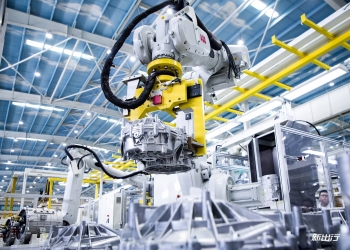
Application of MAX Special Ceramics Material Titanium Aluminum Carbide Ti2AlC Powder
Chemical industry: The corrosion resistance of this powder makes it widely used in chemical equipment, such as manufacturing corrosion-resistant pipelines and valves.
Cutting and grinding tools: The high hardness and wear resistance of Ti2AlC powder make it an ideal material for manufacturing high-performance cutting and grinding tools.
Advanced composite materials: Ti2AlC powder can be used as a reinforcing phase to composite with other materials and prepare advanced composite materials with excellent performance.
Company Profile
RBOSCHCO is a trusted global chemical material supplier & manufacturer with over 12-year-experience in providing super high-quality chemicals and nanomaterials, including boride powder, nitride powder, graphite powder, sulfide powder, 3D printing powder, etc.
The company has a professional technical department and Quality Supervision Department, a well-equipped laboratory, and equipped with advanced testing equipment and after-sales customer service center.
If you are looking for high-quality MAX Special Ceramics Material Titanium Aluminum Carbide Ti2AlC Powder, please feel free to contact us or click on the needed products to send an inquiry.

Storage Condition of Titanium Aluminum Carbide Ti2AlC Powder
Temperature: It is generally recommended to store Ti₂AlC powder at room temperature, which is usually 15 – 25°C. Avoid storing it in environments with extremely high or low temperatures. High temperatures may cause the powder to undergo thermal reactions or phase changes. In contrast, low temperatures may make the powder more brittle and affect its properties.
Humidity: The storage environment should be kept dry with a relative humidity, preferably below 60%. High humidity can cause the powder to absorb moisture, which may lead to oxidation or hydrolysis reactions on the surface of the powder particles, thereby affecting the purity and performance of the powder. It is advisable to store the powder in a desiccator or use moisture-proof packaging and add desiccants if necessary.
Air Tightness: Ti₂AlC powder should be stored in an airtight container to prevent contact with air. Air can cause the powder to oxidize, especially under high-temperature or high-humidity conditions. Sealed plastic bags, glass bottles with airtight lids, or metal cans with good airtightness can be used for storage.
Light: It is better to store Ti₂AlC powder in a dark place, away from direct sunlight and strong light sources. Although Ti₂AlC is generally not highly sensitive to light, prolonged exposure to light may cause some photochemical reactions in some cases, which is not conducive to the long-term storage of the powder.
Isolation: Keep Ti₂AlC powder away from substances that may react with it, such as strong acids, strong alkalis and other corrosive substances. These substances may contaminate the powder or react with it, resulting in a change in its properties.
Payment Term
L/C, T/T, Western Union, Paypal, Credit Card etc.

Shipment Term
By sea, by air, by express, as customers request.
5 FAQs of Titanium Aluminum Carbide Ti2AlC Powder
Q1
What are the key physical properties of MAX Special Ceramics Material Titanium Aluminum Carbide Ti2AlC Powder that make it suitable for high-temperature applications?
Answer: MAX Special Ceramics Material Titanium Aluminum Carbide Ti2AlC Powder exhibits high melting point, excellent thermal stability, and resistance to oxidation at elevated temperatures. These properties enable it to maintain its structural integrity and performance in high-temperature environments.
Q2
How does the unique crystal structure of Ti2AlC Powder contribute to its mechanical properties?
Answer:MAX Special Ceramics Material Titanium Aluminum Carbide Powder displays exceptional oxidation resistance compared to many other ceramic products. Its capability to create a safety oxide layer at high temperatures successfully stops additional oxidation, guaranteeing a longer life span and much better efficiency in oxidizing settings.
Q3
What are the handling obstacles related to making MAX Unique Ceramics Product Titanium Light Weight Aluminum Carbide Ti2AlC Powder right into intricate forms?
Answer:Making MAX Unique Ceramics Product Titanium Lightweight Aluminum Carbide Ti2AlC Powder into complicated forms can be tested because of its high solidity and brittleness. Unique sintering methods and machining procedures are needed to attain the desired forms without endangering the product’s honesty.
Q4
Just how does the oxidation resistance of Ti2AlC Powder contrast to various other ceramic products?
Answer: Ti2AlC Powder shows premium oxidation resistance contrasted to numerous various other ceramic products. Its capability to create a safety oxide layer at heats successfully protects against more oxidation, making sure longer life span and much better efficiency in oxidizing atmospheres.
Q5
What are the potential applications of MAX Special Ceramics Material Titanium Aluminum Carbide Ti2AlC Powder in the field of energy conversion?
Answer: MAX Special Ceramics Material Titanium Aluminum Carbide Ti2AlC Powder has potential applications in the field of energy conversion due to its excellent thermal conductivity and electrical properties. It can be used in solid-state electrolytes for batteries and fuel cells, as well as in thermal management systems for efficient heat transfer.
REQUEST A QUOTE
RELATED PRODUCTS
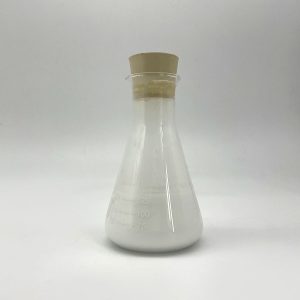
MAX Special Ceramics Material Vanadium Aluminum Carbide V4AlC3 Powder
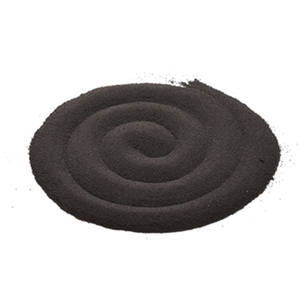
MAX Special Ceramics Material Niobium Aluminum Carbide Nb4AlC3 Powder
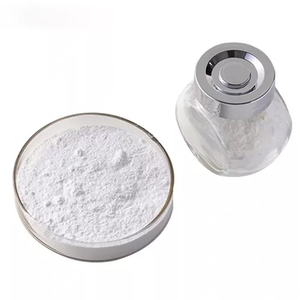
MAX Special Ceramics Material Titanium Silicon Carbide Ti3SiC2 Powder
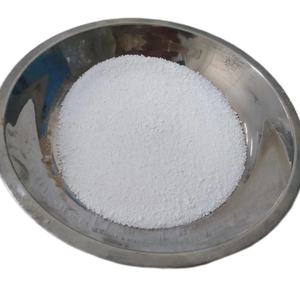
MAX Special Ceramics Material Molybdenum Aluminum Carbide Mo3AlC2 Powder
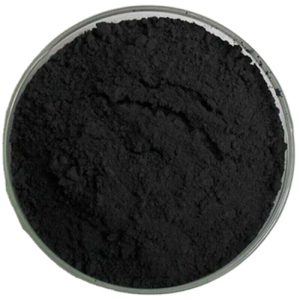
MAX Special Ceramics Material Titanium Aluminum Nitride Ti4AlN3 Powder
